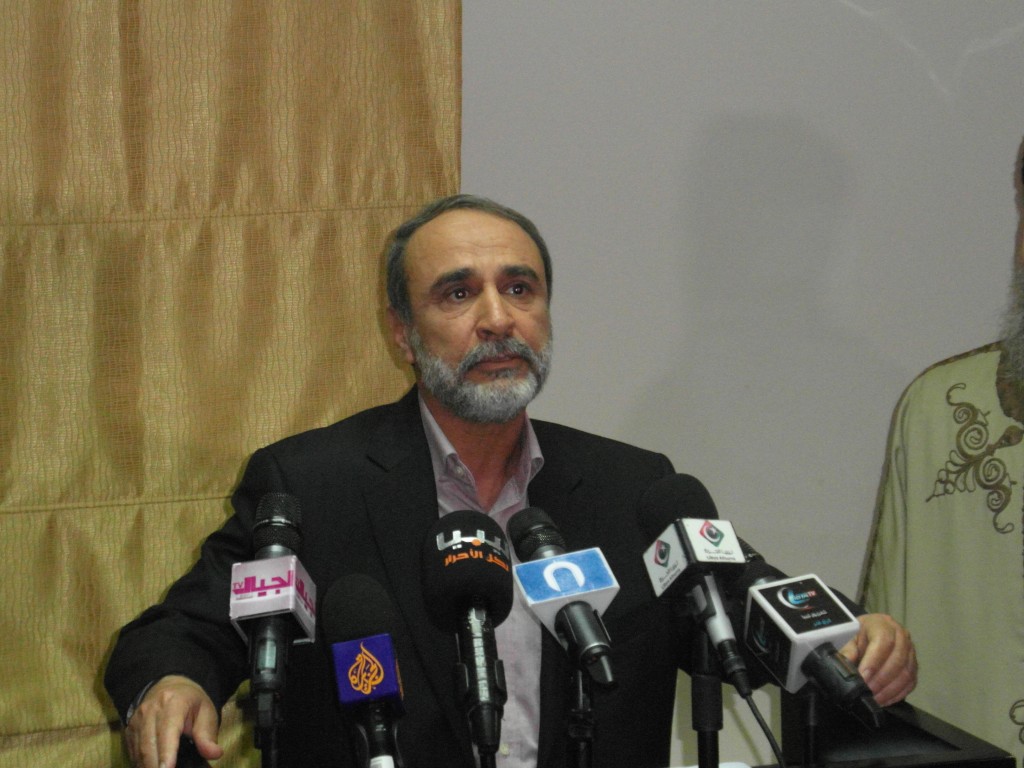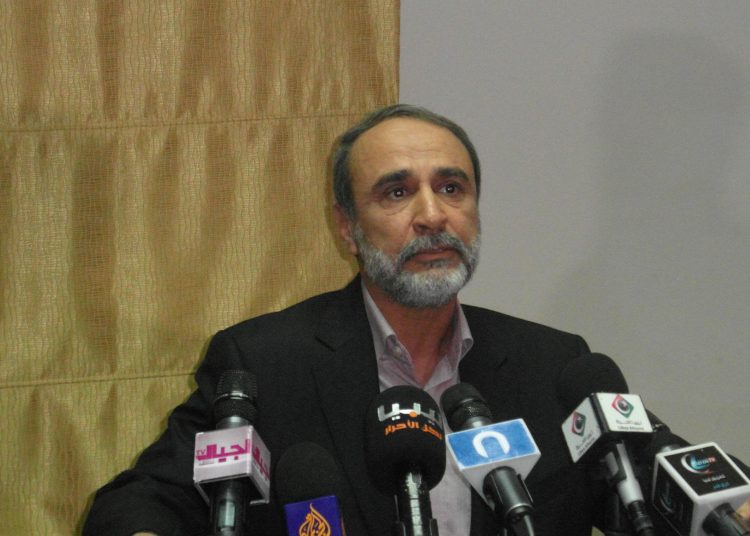By Sami Zaptia.

Tripoli, 7 March 2013:
Abdulrahman Swehli gave a press conference last night in Tripoli to give his view on the . . .[restrict]Political Isolation Law and the claims that he was behind the demonstration that held GNC members hostages for a whole day and attempted to coerce them into passing the law.
The Political Isolation Law is a law that is intended to bar anyone who had held a senior and active position during the Qaddafi era from holding office in the new Libya – for a set number of years.
Some see it as no more than a political purge. Others see it as a form of transitional justice. The problem is that the law in its current state is so draconian that it will bar all the current top leadership such as Magarief and Zeidan from holding office. It will also bar many experienced bureaucrats and administrators from office – leaving the new Libya with no one to guided through its formative stage.
Some critics see the law as an attempt by various political parties to settle scores. The law would disbar Mahmoud Jibril, leader of the NFA for example. Others see it as an attempt by parties and figures that did not perform well in the last elections to gain power through the backdoor – Abdulrahman Swehli, for example.
The coercive demonstration and the holding of the GNC members hostage in a building all day ended with an apparent attempt on the life of GNC head Mohamed Magarief. There are those who have linked the demonstration supporting the Political Isolation Law indirectly with the assassination attempt – although the linkage is still not clear.
Swehli sees himself as being in the forefront of those responsible for the protection of the February 17th Revolution. He denied he supports the use of force or that he or the demonstrators attempted to coerce the GNC into passing the law immediately.
He had no problem justification his legitimacy or his actions. “The Revolution and revolutionaries are falling behind and those opposed to the revolution are progressing. Our legitimacy comes from the revolution and any action that goes against the revolution – it’s our duty to oppose it”, said Swehli.
Regarding the law he said that “political isolation is, in my opinion, our solution to the revolution. It would turn over the old page and start a new page. Those who drafted the Political Isolation law wanted to force a negotiation so as to reduce its effect”.
Asked specifically about the coercion, alleged gunfire and the firing at GNC head Magarief’s car he said that “there was gunfire in the air but I did not see gunfire being directed at Magarief’s car. I did not see any GNC members being threatened”. However, TV footage clearly showed that at least one GNC member attempting to leave was assaulted.
However, Swehli was not repentant. “I still call on those in favour of the political isolation law to continue their peaceful demonstrations. That is my stated position – but I do not partake in the organizing of these demonstrations. This (demonstrating) is a right.”
“There is an effort to intimidate me in order to change my position. We want new faces representing the 17th February Revolution and we want to get rid of the old guard.”
Asked for his justification of the Political Isolation Law, Swehli added that “all revolutions enforced some kind or form of political isolation. We recognize that the old guard joined the revolution – but they must not lead it. We cannot let those who participated in the corruption by Qaddafi to lead now after the February 17th Revolution.”
“They must be isolated for a set number of years. The attempt to appoint Aujli as Libya’s Foreign Minister, for example, was a test by the enemies of the Revolution to test our resolve. We are still in a state of Revolution and a return of the old guard is a great danger on the revolution. We saw what they did over 40 years and do we want to give them another chance?, he asked rheoterically.
Swehli then addressed the issue that if everybody that had gained experience during the 42 years of Qaddafi’s era was to be ‘isolated’ there would be no one left with experience to run the new Libya.
“Even the present Prime Minister has no previous experience, yet his performance is ok. This is proof that there are people who can do a job – if allowed to, replied Swehli”
Asked why he was the only one in the forefront of this campaign and why was it that many blamed him for all the problems?
Swehli said that he “accepted this responsibility of being in the forefront, but there are others too who are concerned with this issue“. Regarding trying to blame him he retorted “they are trying to assassinate me politically”. [/restrict]









